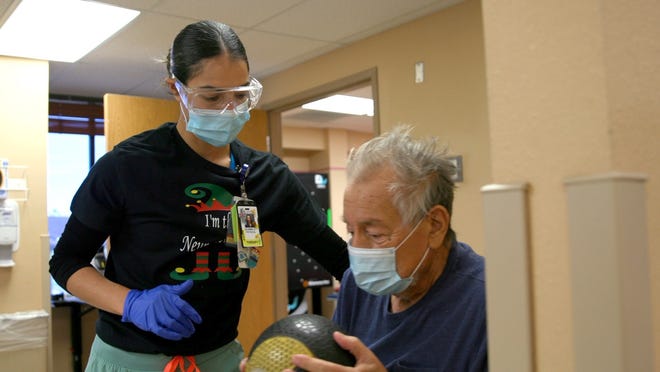
Elderly in El Paso need access to physical therapy
Older people can attest that they have experienced aches and pains throughout their lives. For many, these pains can be chronic due to an injury, illness, or accident, requiring regular treatment. Across Texas, there is a growing demand for physiotherapists and assistant physiotherapists (PTAs) to help seniors manage their chronic pain and stay independent.
Unfortunately, new federal regulations are threatening the ability of physical therapy practices, including frontier therapy services where I have worked for several years, to care for patients. This is especially true in underserved communities. Unless addressed by Congress, Medicare’s devastating cuts will make it difficult for providers to keep staff vital at a time when the profession is struggling to meet the demand for 27,000 more physiotherapists that will be needed over the next three years.
Physical therapy is a healthy alternative to pharmaceuticals and surgery to control pain in people who suffer. Research shows that disparities within neglected communities and rural areas will continue to pose a threat to patients’ access to care, while the unforeseen circumstances of the pandemic and the opioid crisis have added an additional layer of challenges.
Although the prevalence of COVID-19 is slowing, many Americans are still recovering or continuing to have symptoms as a result of the virus. These people are known as long haulers and often need help to regain strength and mobility due to fatigue, difficulty or inability to walk and constant stress and discomfort. Meanwhile, more and more jeans want access to non-pharmacological treatments to help relieve their chronic pain.
From what I have seen during my years in El Paso, rural and disadvantaged areas like ours have been especially affected by opioid addiction and the overdose epidemic. Within El Paso County, there was a 69% increase in opioid-related deaths in 2020. As this crisis has been fueled by an over-prescription of potentially addictive painkillers, it is vital that physicians resort to to safer approaches, such as physical therapy.
As an Assistant Physiotherapist (PTA) by profession, I know how important the role of the PTA is in implementing patient treatment plans to address the shortcomings of the industry. Our roles include monitoring patient progress, using different methods of care, and discussing post-treatment plans with family members.
However, despite evidence supporting the value that therapist assistants like me offer to the patient care experience, Medicare recently implemented 15% pay cuts on the services that PTAs offer. This will not only alter the dynamics of patient care, but will also negatively affect the performance of care, especially in rural areas. It can be heartbreaking to explain to patients why their PTA can no longer serve them. In addition, some therapists feel that this Medicare cut has discredited their role in the clinics where they practice, while adding a layer of fear and nervousness to their future and the stability of their jobs.
In response to these detrimental pay cuts, Representatives Bobby Rush, D-Illinois, and Jason Smith, R-Missouri, have introduced the Medicare Access to Rehabilitation and Therapy (SMART) Access Stabilization Act (HR 5536), bipartisan legislation to combat these cuts. . If passed, the bill will delay the implementation of the 15% reduction for an additional two years, prevent the application of cuts in rural and neglected areas, and reduce the supervision requirements of therapy assistants. In addition, these cuts affect other private and public insurers, such as Tricare and Triwest, which are prominent in the El Paso area.
The SMART Act will be transformative in the delivery of patient care, especially in areas where PTAs are most needed. There is a history of health disparities in many Texas communities, especially El Paso, which the SMART Act can address directly, while demonstrating that policymakers recognize the importance of therapy assistants in meeting increased patient demand. . I have witnessed the increasing demand for care provided by PTs and PTAs recently, on which much depends in El Paso. It is time to prioritize the need for safe pain management services and stop these harmful and wrong cuts.
I applaud Rep. Marc A. Veasey, D-Texas, for co-sponsoring this bill, and I urge the rest of the Texas Congressional delegation to show their support for the SMART Act. It’s time to dump her and move on.

Comments are closed.